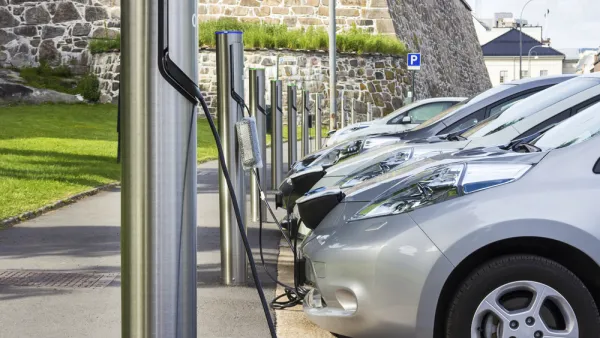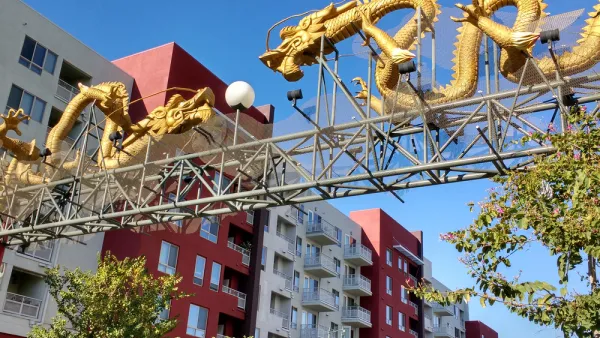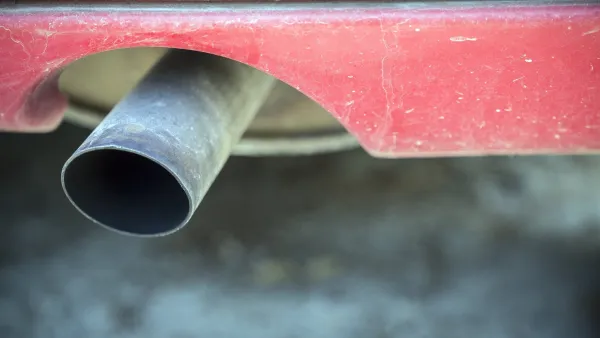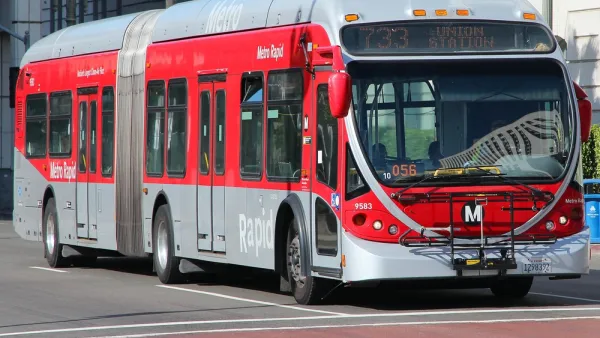Irvin Dawid discovered Planetizen when a classmate in an urban planning lab at San Jose State University shared it with him in 2003. When he left San Jose State that year, he took with him an interest in Planetizen, if not the master's degree in urban & regional planning.
As a long-time environmental activist, he formed the Sustainable Land Use committee for his local Sierra Club chapter and served six years on the Bay Area Air Quality Management District’s Advisory Council from 2002-2008. He maintains his interest in air quality by representing Sierra Club California on the Clean Air Dialogue, a working group of the Calif. Environmental Dialog representing business, regulatory and public health/environmental interests.
Major interests include transportation funding, e.g., gas taxes, vehicle miles traveled (VMT) fees, road tolls and energy subsidies that lead to unlevel playing fields for more sustainable choices.
He hails from Queens (Bayside) and Long Island (Great Neck); received an AAS in Fisheries & Wildlife Technology from SUNY Cobleskill and a B.S. from what is now Excelsior College.
After residing for three years on California’s North Coast, he’s lived on the San Francisco Peninsula since 1983, including 24 years in Palo Alto. Home is now near downtown Burlingame, a short bike-ride to the Caltrain station.
He’s been car-free since driving his 1972 Dodge Tradesman maxi-van, his means to exit Long Island in 1979, to the junkyard in 1988.
Major forms of transportation: A 1991 'citybike' and monthly Caltrain pass, zone 2-2. "It's no LIRR, but it may be the most bike friendly train in America."
Irvin can be reached at [email protected]

Electrifying California: Volkswagen Settlement Approved
The biggest obstacle to the adoption of electric vehicles in California, a shortage of charging infrastructure, just became a lot more manageable thanks to $200 million from Volkswagen stemming the from the dieselgate settlement.

Housing Density a Missing Link for Emissions Reductions in California
Emissions from electricity generation are decreasing while those from transportation are increasing. If communities don't increase housing density to change travel patterns, it will only get worse, but the challenges may be insurmountable.

Another Nail in the Coffin of the Internal Combustion Engine?
Is the movement away from gasoline and diesel-powered cars unstoppable? In response to air pollution litigation, the British government announced on July 26 that sales of gasoline and diesel vehicles would be banned by 2040.

Los Angeles Metro Takes Initial Step Toward Conversion to Electric Buses by 2030
The board of L.A. Metro voted Thursday to spend $138 million to purchase 95 electric buses plus chargers and wiring upgrades for two transit lines that now use natural gas buses, and approved a motion to convert all buses to battery-electrics by 2030

Senate Appropriations Committee Restores TIGER Grant Program
Unlike the House Appropriations Committee's DOT budget that reduces spending by almost 4 percent from current levels and eliminates the TIGER grant program, its Senate counterpart increased transportation spending, including the TIGER grant budget.

























